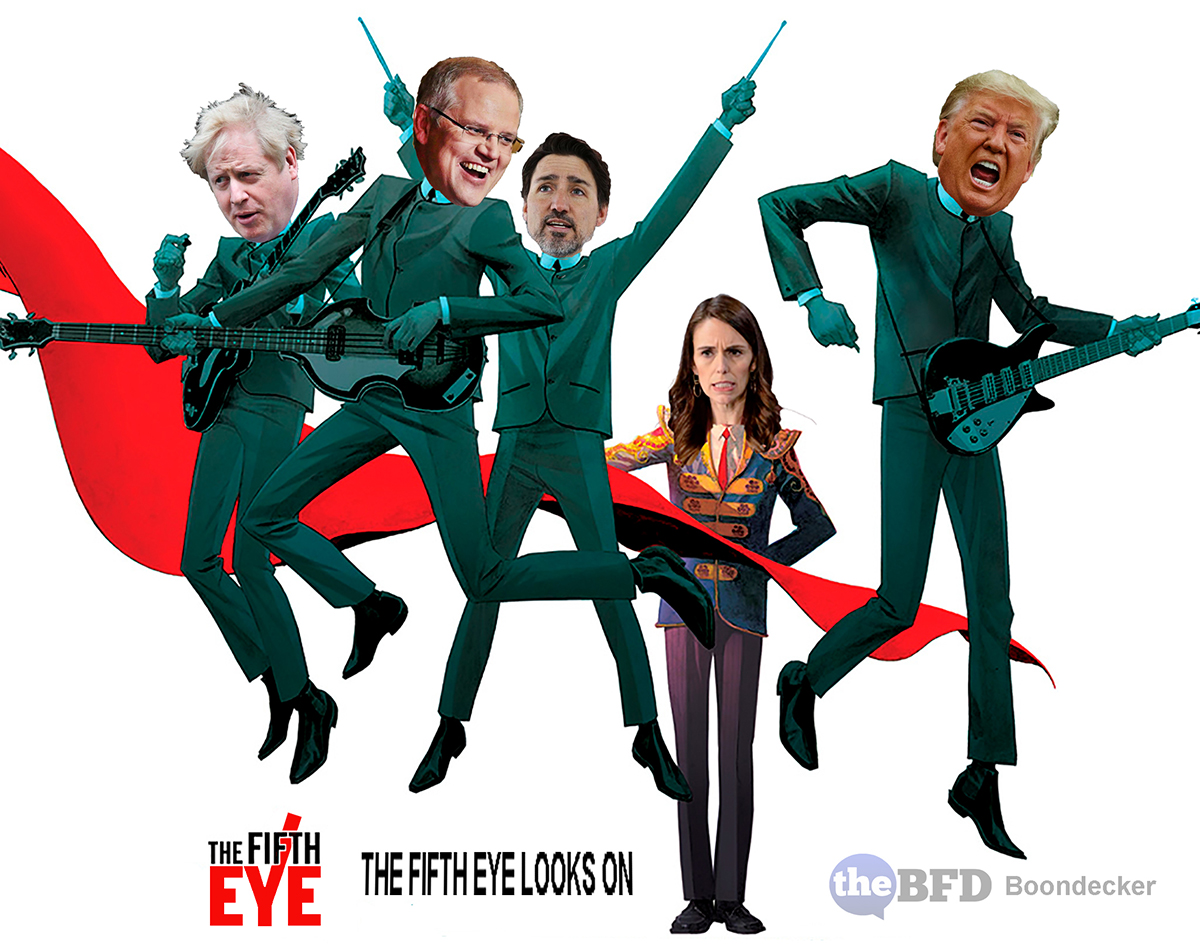The Ardern government’s stance on Huawei and 5G is increasingly causing New Zealand to stand alone as a weak point in the critical Five Eyes security alliance. Where the division over Huawei will leave the Five Eyes alliance is anybody’s guess as one notable rift has already occurred.
Four of the five alliance partners have issued a strong statement in reponse to China’s increased aggression in Hong Kong. New Zealand’s name was conspicuously absent.
“Joint Statement on Hong Kong – Canada, US, UK, and Australia:
“Signatories to this statement reiterate our deep concern regarding Beijing’s decision to impose a national security law in Hong Kong.
“Hong Kong has flourished as a bastion of freedom. The international community has a significant and longstanding stake in Hong Kong’s prosperity and stability.”
Britain also pointedly reminds China that it signed a legally binding agreement when it took over the former British territory in 1997.
The legally binding Joint Declaration, signed by China and the UK, sets out that Hong Kong will have a high degree of autonomy. It also provides that rights and freedoms, including those of the person, of the press, of assembly, of association and others.
So that’s four of the five partners – where’s New Zealand?
It was up to Deputy Prime Minister Winston Peters to issue a statement under his own name.
“New Zealand shares the international community’s significant and long-standing stake in Hong Kong’s prosperity and stability,” Mr Peters said[…]
“New Zealand is concerned at the impact the new legislation could have on important rights and freedoms enshrined in Hong Kong’s Basic Law, and in United Nations human rights covenants incorporated in the Basic Law, including freedom of expression and the right to peaceful protest.
Peters’s statement is almost identical to the joint statement of the other Five Eyes partners.
So, why wasn’t New Zealand’s name alongside those of its alliance partners?
Sure, it was posted on the Beehive website and, as Foreign Minister, this is Peters’s portfolio – but the joint statement was also signed by the foreign ministers of the other four countries.
Was New Zealand deliberately left out, or did it choose to go it alone, just as it has on the Huawei issue?
If you enjoyed this BFD article please consider sharing it with your friends.

